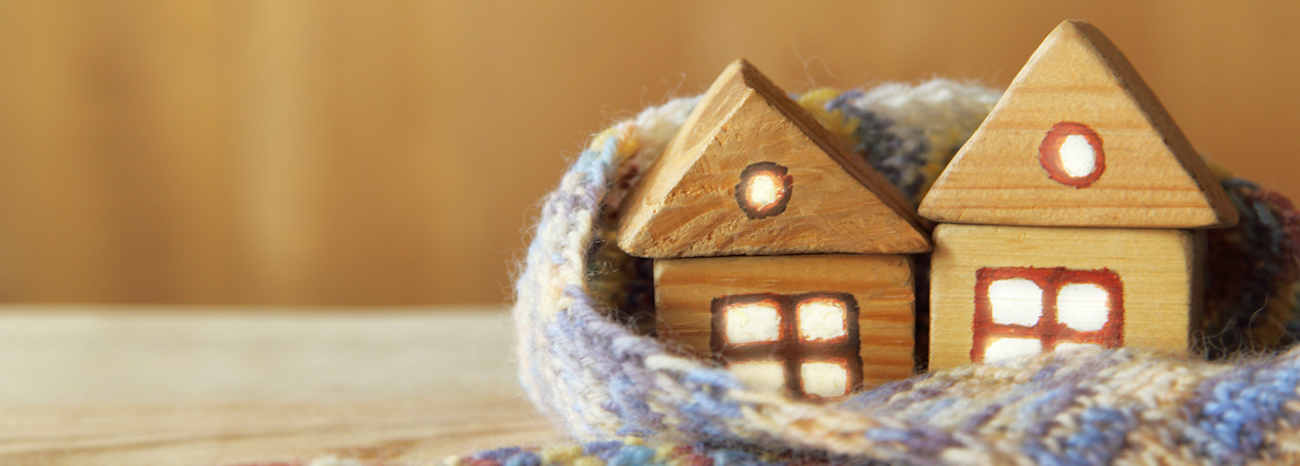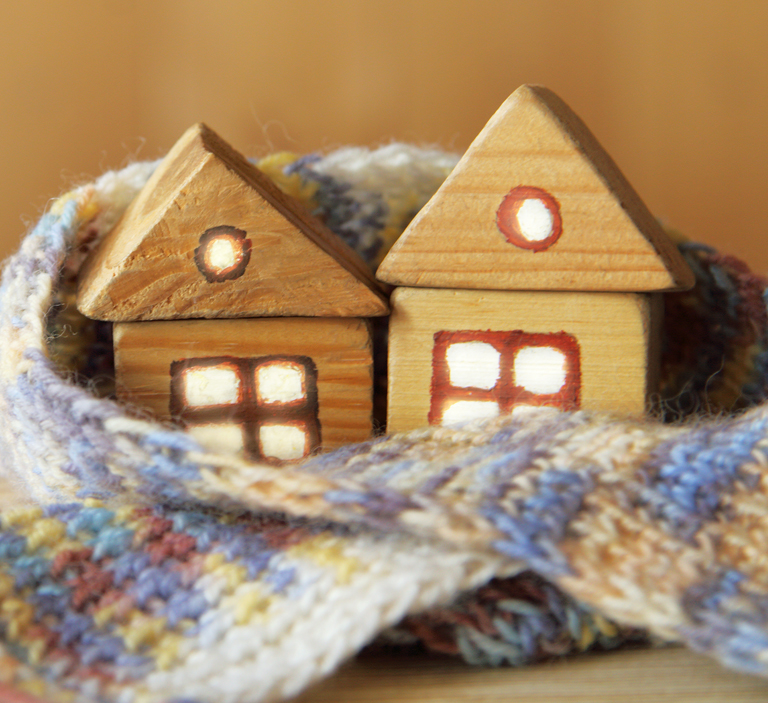

Staying Warm While Saving Money on Your Heating Bill
If it feels like your budget is getting squeezed to the max, you’re not imagining things. You’re doing all the right things, making hard choices and being careful with expenses. As the winter months arrive, this includes deciding when to make the call to order another round of heating oil for your home. According to the U.S. Department of Energy, home heating makes up about 29% of your annual utility bill.
Nobody likes paying too much money for their energy bills. Sure you can save money by adding an extra layer of clothing or getting cozy under a blanket while watching the big game but there are other ways you can lower costs without sacrificing your comfort and convenience.
Start with these energy efficient habits and practical tips to prepare your home for cold weather.
Check Your Windows and Doors
Are you experiencing heating loss through your windows and doors? Check your windows and doors to make sure they still have a tight seal. You may need to replace the weatherstripping or apply some caulking. Did you forget to transition from screens in your storm windows? Make that change now.
If you’re not sure where the air leaks are coming from, try the candle test. Light a candle and notice which way the flicker of the flame and the smoke trail flow. Follow that path to the likely culprit.
You may need new windows but if that isn’t in the budget, use heavy duty clear plastic window treatments to help insulate your home and keep the warm air in.
Do You Have Enough Insulation?
How well insulated is your attic? If it’s lacking insulation heat will easily escape, increasing your energy costs. It’s best to have at least 11 inches of insulation throughout the upper level of your home.
Use Your Ceiling Fans
Ceiling fans do more than bring relief in the summer. They can also help move the warm air around your home in the fall and winter. All you need to do is reverse the direction of the fan from counterclockwise to clockwise using the switch on the fan’s base. Heat rises, so the clockwise motion will push this warm air down and into your living spaces, leading to more efficient energy use.
Let the Sunlight In
Use the weather – as well as your drapes or blinds – to your advantage. On sunny days, open your drapes or blinds to let the warm sunlight into your home. Then, at dusk, close the blinds and drapes to keep the cooling air out and the warmth inside.
Use a Humidifier
Give your heating system a little help by using a humidifier. Placing a humidifier in the rooms you most frequently will help create warmth because air that is humid feels warmer than air that is dry. This will allow you to lower the thermostat of your system and use less energy.
Reconsider the Fireplace
A toasty fire sounds like a perfect way to warm a room and save money on heating bills, right? Well, not exactly. If used the same way we recommend using a space heater, heating the area where you are spending your time and lowering the thermostat, yes. But your fireplace doesn’t provide enough warmth to heat your whole home.
When not in use, make sure to seal the flue of your chimney or install a draft guard to prevent the warm air from escaping through your chimney.
Amplify the Air Coming from Your Vents
Consider getting an air vent booster. This is a fan that is installed over your vents to pull more air into the room.
Heat the Space You’re Using
- Check Your Vents
Are there rooms in your home that you don’t use regularly, like a guest room or office space that is only used at certain times of the week? Close the vents in these rooms when they’re not occupied so that the hot air can travel to the other rooms of your home that are in use. - Shut the Doors
In addition to closing the vents of unused room, keep the doors to these rooms closed as well. This will prevent valuable warm air from getting in. In extreme cold, do not allow the temperature in these areas of your home to dip below 40 degrees. If you do, you’ll risk a whole new problem: frozen or broken pipes.
Rearrange the Furniture
Make sure your heat vents aren’t blocked by bulky sofas or other furniture. Consider a new room set-up for the colder months of the year to maximize the effectiveness of your heat.
Ready, Set, Bake!
You probably use your grill more often than your stove or oven during the summer months. Not only because the food tastes better when grilled but also because the kitchen gets too hot with all of the appliances heating up the room. The same logic applies in the colder months. Put away the takeout menus and let the warmth from cooking and baking add to the comfort of your home.
Turn Down the Heat…of Your Water Heater
Most water heaters are set to the industry standard of 140 degrees fahrenheit. But it doesn’t have to stay at that setting. You can lower it to 120 degrees fahrenheit and save up to 10% on your energy expenses.
Turn Down Your Thermostat
Simply lowering the thermostat can bring savings of nearly 5% and when done along with some of the tips already mentioned, your savings will grow.
If you’re not into a little extra chill while you’re home, lower the thermostat before leaving the house for the day. Lower the temperature a few degrees before bed, when you can stay warm under the covers. Consider adding an electric blanket to your winter bedding.
You can manage your thermostat manually or take it off your list by installing a smart thermostat so you can program changes ahead of time. Many programmable thermostats also offer the convenience of an app.
Get the Most from Your Furnace
Make sure you’re getting the best out of your heating system.
- Replace Furnace Filters
Help your furnace to work more efficiently by regularly replacing your furnace filters. The general recommendation is every three months but some units require a new filter every month. Experiment with a replacement schedule to see how quickly your furnace filters get clogged with dust and other materials. - Keep Up with Furnace Service
Don’t miss your annual furnace service and cleaning. A regularly scheduled inspection and cleaning – usually at the end of summer or the start of fall – helps the furnace perform at its best throughout the colder months and helps to head off any major issues or repairs. - Consider an Upgrade
Most heating systems are built to last 20 years or more. If yours has reached that milestone and performance is starting to suffer, it may be time for a new unit. The short-term expense will lead the way to savings for many years to come.
We are here when you need us.
When you put these suggestions to work, you’ll start to enjoy the benefits of paying less for heating your home. When you do need an oil delivery, our Will Call team is ready to help. Learn more about our Will Call service or call 610.847.1012 to place an order.
Have Questions?
Contact us and we will be happy to answer any questions. Call 215.799.2019 or click the button below.
Promotions Sign Up
Sign up below if you would like to receive occasional promotional offers and tips.






